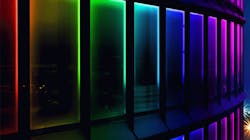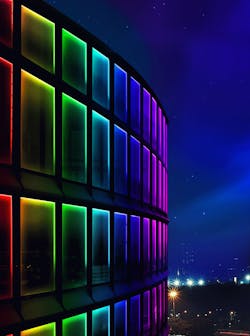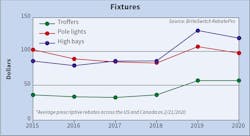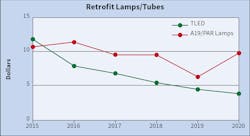2020 Lighting Rebate Update
By Leendert Jan Enthoven, president, BriteSwitch
Lighting rebates are an ever-changing game, and no one knows the rules better than lighting veteran Leendert Jan Enthoven, president, BriteSwitch, Princeton, NJ, the company he founded in 2008 to help businesses take advantage of rebate and incentive programs in the United States and Canada. Leendert was kind enough to let us publish the following article on the U.S. rebate climate in 2020.
Over the past few months, rebate organizations across the country have been busy updating their programs for 2020. We’ve noticed the following trends for this year.
LED rebate amounts will decrease by -12%. Historically, we have seen the prescriptive rebates for LED products drop by around -10% on average each year. In 2019 however, we saw the first average increase of rebates. But then, in 2020, the original trend continued with a -12% decrease in the rebate amounts across all LED categories. Looking at the data, we observed a significant difference in the rebate trends for retrofit lamps versus fixtures.
Replacement screw-in lamps (A-shape, PAR, etc.) experienced the largest drop, -27% in the last year. Linear tubes saw a decrease of -13%, but that’s actually the lowest decrease they’ve seen since tubes came on the market.
LED fixtures saw a significant increase in rebate amounts in 2019 but in 2020 they mostly leveled out. On average, rebate amounts for LED fixtures were only down -5% over the past year. Since the rebates for fixtures can be relatively high, make sure to pay attention to any cost caps that may apply.
Seventy-six percent of the U.S. offers commercial lighting rebates. The percentage of the United States covered by an active commercial lighting rebate is constantly changing based on rebate funding levels. The past 11 years, we’ve seen that percentage range from a low of 68% to a high of 81%. Currently, 76% of the US is covered by an active commercial lighting rebate program, up from the 73% we saw at the beginning of 2019. Still, there are some large pockets in Alabama, Kansas, West Virginia and North Dakota that do not have commercial lighting rebate programs. To see how rebates have changed over the past 10 years, you can view BriteSwitch’s Rebate Climate Map at www.briteswitch.com/rebatecoverage.php.
Rebate pre-approval times are improving. Rebate pre-approval is required in a majority of prescriptive and custom rebate programs across North America. During the pre-approval process, programs review the application, verify whether the products are eligible, schedule inspections and reserve the funding.
Since we file thousands of rebate applications a year, we keep track of how long pre-approval takes for projects. Historically, the pre-approval process typically took 29 days on average. Over the past two years, that time has decreased significantly to 18 days. That improvement can be due to a variety of reasons, such as increased use of electronic applications (versus paper), streamlined processes and fewer applications for the utility to process.
Even though the average pre-approval time is only 18 days, some projects can still take months to get pre-approval. Therefore, make sure you allocate yourself enough time to secure pre-approval before any work is scheduled to start.
Anticipate the change to DLC 5.0. As you may have heard, the Design Lights Consortium (DLC) recently finalized the DLC 5.0 and 5.1 technical requirements. These policies address topics like increased efficiency of products, controllability of most LEDs and improved light quality. Current products that meet all the requirements will be automatically updated to 5.0 at the end of March. On Dec. 31, all products that do not meet 5.0 requirements will be delisted.
What does that mean for rebates? Most lighting rebates require an active DLC listing to receive an incentive. At this time, no rebate program has officially announced a plan regarding the move to 5.0. Since most 2020 programs are already in place and DLC 4.4 products will still be listed for the remainder of the year, you should not have a problem getting rebates for those products this year.
The real problem may happen in 2021. Since the 4.4 products will be delisted as of 2021, any project that goes into next year may be an issue. Since 5.0 has additional dimming and efficacy requirements, some existing stock may no longer qualify. If you’re planning a long-term project or a retrofit that will cross over the calendar year, make sure you either use a product that will meet the 5.0 requirement or finish the project before the end of this year.
If you are planning a project and need help estimating and filing rebates, BriteSwitch can get you the most money with no hassle. If you want to create leads and increase your sales with rebates, our RebatePro and Rebate Assistant tools can help you find and identify rebates for your customers.
To learn more about BriteSwitch’s RebatePro database, RebatePro and Project Management System, contact the company at [email protected] / 609-945-5349.



